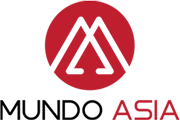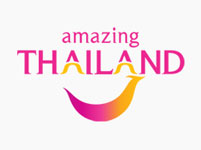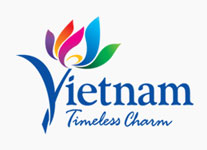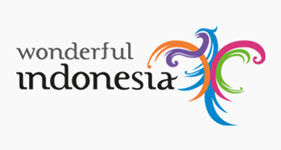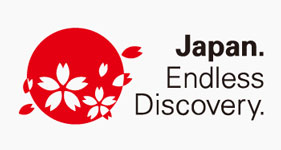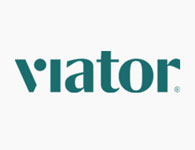
Myanmar
Myanmar is often referred to as the golden land, and it’s easy to see why with its thousands of temples and pagodas encrusted in gold leaves, diamonds and gems, bathed in the golden light that shines as the sun rises and sets. A religious centre of Buddhism in Southeast Asia, cities like Yangon, the largest city, and Mandalay, the cultural capital, hold treasures like the Shwedagon Pagoda and ancient capitals of the region. Untouched, natural landscapes and diverse ethnic minorities abound in the serene Inle Lake and Bagan, a temple town on its way to becoming a UNESCO World Heritage Site, continues to impress with its thousands of dusty-coloured ruins scattered throughout bright tufts of green jungle.
2024 Myanmar travel packages
I dream of Burma
Myanmar sampler
Things to do







Photo gallery
Travel guide
Time to visit
Myanmar’s stunning scenery is most accessible during the peak travel season between November and February when the dry season is in full swing and the weather is consistently sunny. That being said, the country can be visited year-round save for the southern beach regions on the Bay of Bengal and Andaman Sea and river travel on the Irrawaddy from May to October. During this time of year trekking to remote hill tribes in the Shan State and visiting the temples of Bagan can be very rewarding due to the lack of crowds if you do not mind a bit of heat and unpredictability. A truly memorable time to visit the golden land is during Thingyan, the Burmese New Year which occurs in the middle of April. Prepare to get soaked as locals and foreigners alike participate in a water fight to cleanse away past transgressions and bad luck.
Accommodation
With the opening up of Myanmar over the past few years, the country still has a ways to go in terms of offering a high-level of value matching the price paid when booking accommodation. The majority of places to stay consist of basic guesthouses and 2-star hotels, which can cost you anywhere from $10 – $70 per night. However, if you go through a tour operator, local agency, or online booking agent, it is often possible to find attractive discounts on the few luxury hotels in the country if you book ahead, especially if you plan to travel during the peak season. Expect to pay from $150 – $400 per night for luxury hotels in Myanmar, but keep in mind with commonplace power cuts, even in the most chic hotel, Wi-Fi can be spotty at times. Our personal favourites include romantic colonial hotels like The Strand and The Belmond in Yangon and the Sanctum Inle Resort and Inle Heritage in Inle Lake. Aureum offers posh beachside luxury in Ngapali and a wonderful break when finished touring the temples of Bagan.
Food & drink
Burmese food is full of regional variations and local traditions. In addition to the characteristics attributed from the plethora of ethnic minorities in the country, the cuisine is also heavily influenced by Chinese, Thai and especially Indian traits, as seen in Burmese variations of samosas, curries, and Indian breads. Religion also plays a big part in what kind of meals are served as Buddhists avoid beef and Muslims pork. Take for example the Shan State, populated by a vast amount of ethnic minorities. Here vegetarian dishes are more common to find as well as delicious fish preparation and spicy noodles while the Rakhine State is well-known for its delectable seafood delights. Somehow it makes sense in this diverse nation that the national dish, Mohinga, is a rice noodle and fish soup, something that can be eaten by all. Except to pay around $0.50 for vegetable dishes and $1 for meat-based meals on the street and $2 – $4 per dish in a nicer sit-down restaurant.
Communication
Big cities throughout the country have Wi-Fi access, especially hotels and guesthouses, and some restaurants and cafes. Internet cafes in the cities are bountiful but usually used for online gaming rather than communication. Please be advised it can be difficult to send and receive attached files over the internet, especially in provincial areas due to power cuts and a lower bandwidth of use than other countries. Using the phone can be tricky as landlines frequently go dead while some calls never seem to go through. Internet cafes, Skype and Whatsapp can be an easier way to stay in contact than over traditional landlines or mobile phones. Prepaid SIM cards cost $1 with “pay-as-you-go” credit available in intervals of $1 – $6. In case of emergency, dial 199 for police, 191 for fire service and rescue, and 192 for ambulance. The post offices are efficient at both local and international delivery – keep in mind that even though the official opening hours are between 9 and 4 but some shops may keep shorter hours without notice.
Transport
Myanmar’s infrastructure leaves a lot to be desired. Travellers should be aware that travel by road can be expensive and time-consuming when using a private driver as some destinations require permits, a government-approved guide and driver. The bus is frequent and cheap but due to the poor quality of road can be time-consuming and uncomfortable. Take for example the local bus from Yangon to Bagan costs around $25 for an 11-hour journey. Likewise, trains and boats are very inexpensive and can give excellent chances to interact with locals and see the beautiful countryside but are also slow and can be uncomfortable with hard seats, exposure to the elements, and long delays. Domestic flights are the best option for maximum comfort and reasonable dependability, which range in price from $80 – $120 depending on distance.
Visa requirements
Visa exemption
Citizens of the following countries do not need a visa for tourism purposes as long as they stay less than the period listed below.
- 28 days—Hong Kong, Japan, Macau, and South Korea
- 14 days—Brunei, Cambodia, Indonesia, Laos, Philippines, Singapore, Thailand, and Vietnam
Visa on arrival and e-Visa
- Citizens from over 100 countries can obtain tourist visas on arrival valid for 28 days if arriving by international airport, with a cost of USD50.
- Myanmar also has an e-visa system for tourists to facilitate the application process for the same 100 countries.
- Entry with e-visa is currently available through the three main international airports of Yangon, Mandalay and Nay Pyi Taw, as well as some Thai-Myanmar and Indian-Myanmar border crossings.
Our travel specialists

Sreyly Ye

Vivian Nguyen

Cristóbal Duong

Lucas Pham
Travel inspiration

Mundo Asia Tours Wins TripAdvisor Traveler’s Choice Award 2024!
We're thrilled to announce that Mundo Asia Tours has been honored with the prestigious TripAdvisor Traveler's Choice Award 2024! This recognition is a testament to our unwavering commitment to providing exceptional travel experiences and outstanding customer service.
View detail
Ha Long Bay – Cat Ba Archipelago: A World Natural Heritage Site
UNESCO designated Ha Long Bay as a World Heritage Site twice in 1994 and 2000. In 2004, Cat Ba Archipelago was recognized as a world biosphere reserve. On September 16, 2023, UNESCO officially recognized Ha Long Bay - Cat Ba Archipelago as the first inter-provincial...
View detail
Best places to visit in Cambodia: top 10 destinations
Cambodia is a charming, mystifying kingdom where you can comtemplate the collision of ancient & morden world. UNESCO World Heritage ruins with tropical islands.
View detailWhy travel with Mundo Asia?
Get lost in the hidden charm of Asia
Best price guarantee
We guarantee the best price when booking with us
Responsible travel
Leave nothing but smiles, footprints, and memories
Unique travel experiences
Authentic moments carefully crafted by local experts
Service guarantee
Our customers are the heart of our company
